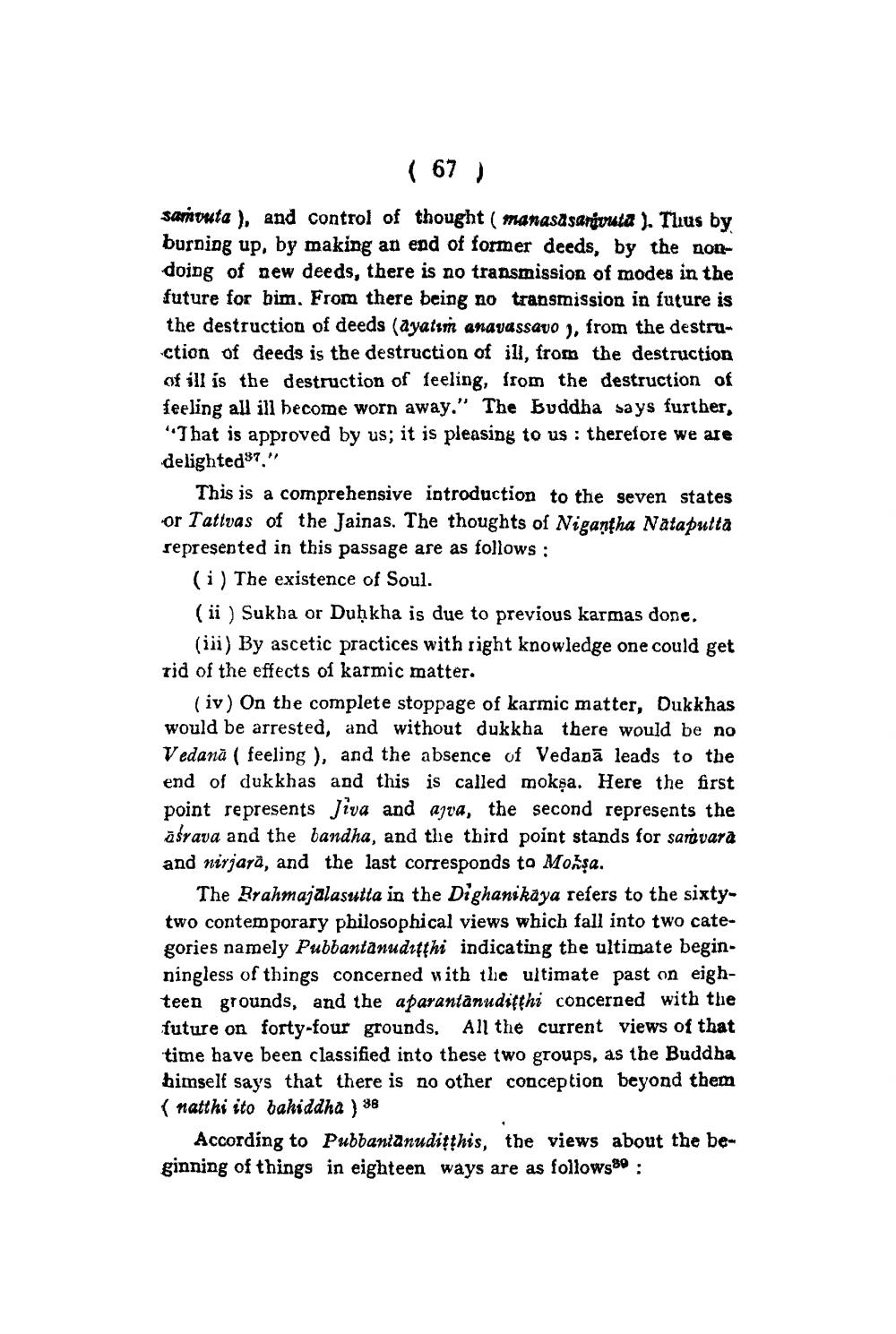________________
( 67 )
samvuta), and control of thought ( manasäsarjvuta). Thus by burning up, by making an end of former deeds, by the nondoing of new deeds, there is no transmission of modes in the future for him. From there being no transmission in future is the destruction of deeds (ayatım anavassavo), from the destruction of deeds is the destruction of ill, from the destruction of ill is the destruction of feeling, from the destruction of feeling all ill become worn away." The Buddha says further, "That is approved by us; it is pleasing to us: therefore we are delighted."
This is a comprehensive introduction to the seven states or Tattvas of the Jainas. The thoughts of Nigantha Natapulta represented in this passage are as follows :
(i) The existence of Soul.
(ii) Sukha or Duḥkha is due to previous karmas done.
(iii) By ascetic practices with right knowledge one could get rid of the effects of karmic matter.
(iv) On the complete stoppage of karmic matter, Dukkhas would be arrested, and without dukkha there would be no Vedana (feeling), and the absence of Vedanā leads to the end of dukkhas and this is called mokṣa. Here the first point represents Jiva and ajva, the second represents the asrava and the bandha, and the third point stands for samvara and nirjara, and the last corresponds to Mokşa.
The Brahmajalasutta in the Dighanikaya refers to the sixtytwo contemporary philosophical views which fall into two categories namely Pubbantanudutthi indicating the ultimate beginningless of things concerned with the ultimate past on eighteen grounds, and the aparantanuditțhi concerned with the future on forty-four grounds. All the current views of that time have been classified into these two groups, as the Buddha himself says that there is no other conception beyond them (natthi ito bahiddha ) 38
According to Pubbantanudiṭṭhis, the views about the beginning of things in eighteen ways are as follows:




